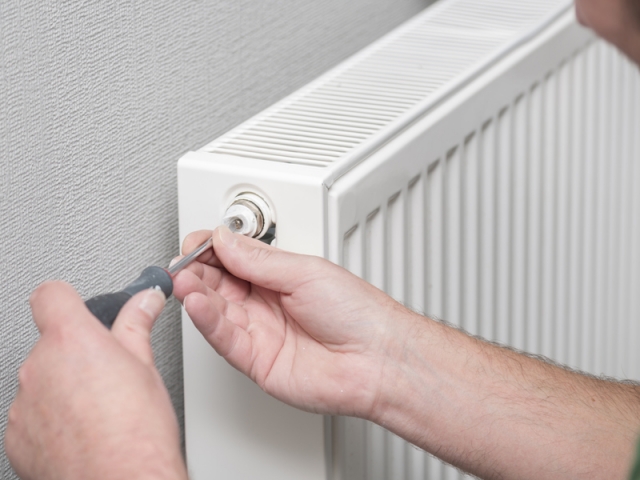A well-maintained heating circuit allowsoptimize the performance of your boiler, and to carry out energy savings. Check that it is in good working order before its restart is therefore recommended to make sure you spend the winter warm. It is therefore necessary to regularly bleed its radiators in order to evacuate the air which infiltrates the heating circuit.
Where does this air come from? The heat produced by the boiler feeds the radiators via pipes filled with water. With time, air bubbles can form in the pipes, and thus prevent hot water from circulating evenly. The radiators then heat less well, and the boiler is running at full speed to compensate. Checking your heating circuit at the start of the season therefore ensures that it is operational before the onset of the first frost.
When to bleed a radiator?
If there are no rules in the matter, it is recommended to bleed its radiators at least once a year, usually before switching the heating back on. But the operation may need to be repeated more often if necessary. Several signs can alert you.
- Your radiator heats less well. If it heats little, or stays cold, while your boiler is operating normally, it may mean that air is clogging the pipes. It is therefore necessary to bleed the radiator to drive it out.
- Your radiator is hot at the bottom and cold at the top. This is a sign that water is circulating poorly in the pipes. Here too, the air that has infiltrated the heating circuit must be evacuated.
- Your radiator is roaring. If it hisses or “gurgles”, it means there is air in the pipes.
- Your radiator is leaking. A dripping radiator is often a radiator that needs to be bled, as this is a sign that air is flowing through the pipes.
How to bleed a radiator?
Bleeding a radiator is simple and only takes a few minutes. To ensure that the entire heating circuit is properly drained, it is preferable to bleed all of your radiators at the same time. For this, you will need a screwdriver, pliers or an adjustable wrench (or the bleed key supplied with the radiator for the most recent of them), a basin to collect water, and possibly a pair of protective gloves.
- Make sure your radiator is cool. To avoid any risk of burns, it is better to work on cold radiators. Be sure to turn off your boiler if you have restarted it, and give the radiators time to cool before blowing them.
- Loosen the bleed screw. It is usually located at the top of the radiator, on the side opposite the thermostat. After putting on the gloves, place the basin, or container, under the drain valve. Using a screwdriver, pliers or a bleed key, gently loosen the screw, without forcing and without unscrewing it completely. If it doesn’t spin and feels stuck, don’t push yourself hard, you might damage it. It is better in this case to call a professional.
Let the water run off for a few seconds © iStock
- Bleed the radiator. Let the air escape from the pipes. Once it is evacuated, water will also come out of the tap. Let it pass for a few seconds (enough to fill the equivalent of a small cup) to make sure that there are no more air bubbles in the heating circuit, then tighten the screw. Repeat the operation on each radiator.
Good to know : newer radiator models often have an automatic bleed system.
Restore pressure in the heating circuit
Your radiators purged, think about check the pressure level of the boiler. The air and water that have flowed out can indeed cause a decrease in pressure. For the boiler to work properly, this must be between 1 and 1.5 bar. If not, open the fill valve to add water to the tank.
Warning : if your radiators depend on a collective heating system, only a specialist is authorized to work on the boiler. This does not prevent you from bleeding your radiators, but the heating circuit can only be checked by a professional. In the event of a problem, it is preferable to notify the caretaker of his building, or the property manager, who will be in charge of contacting the service provider in charge of maintenance.
Thanks to Antony Hadjipanayotou, business manager and plumbing-heating specialist, for his advice.



